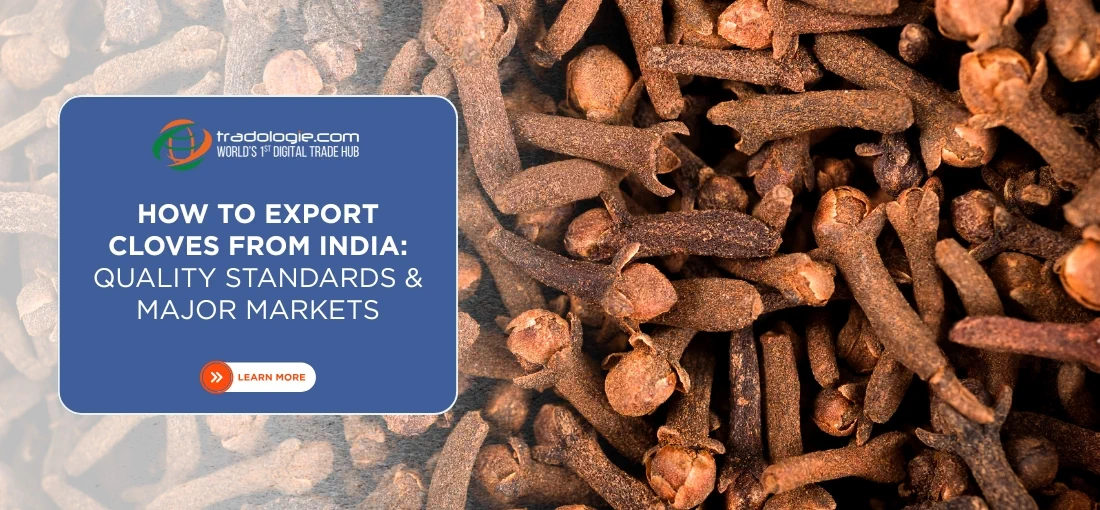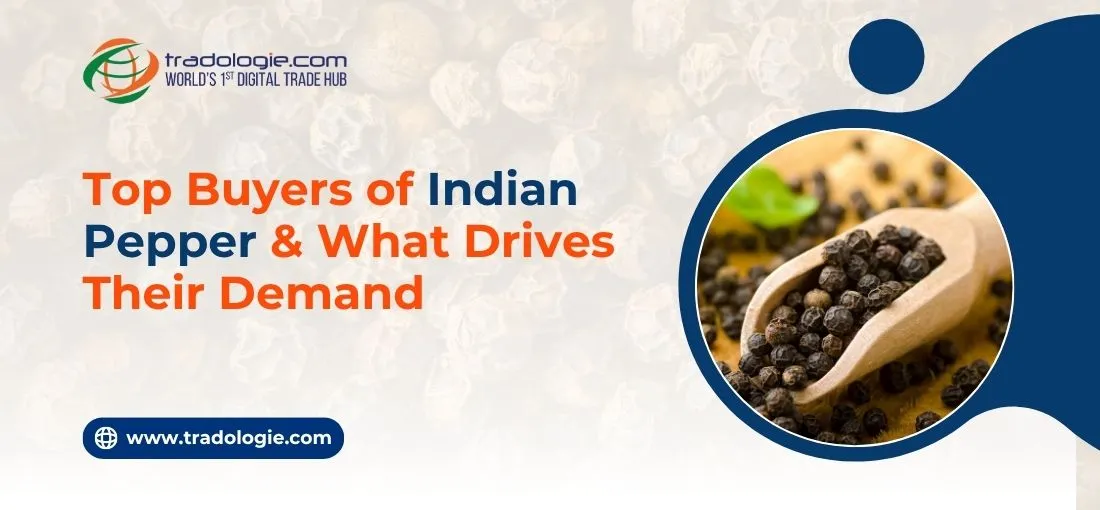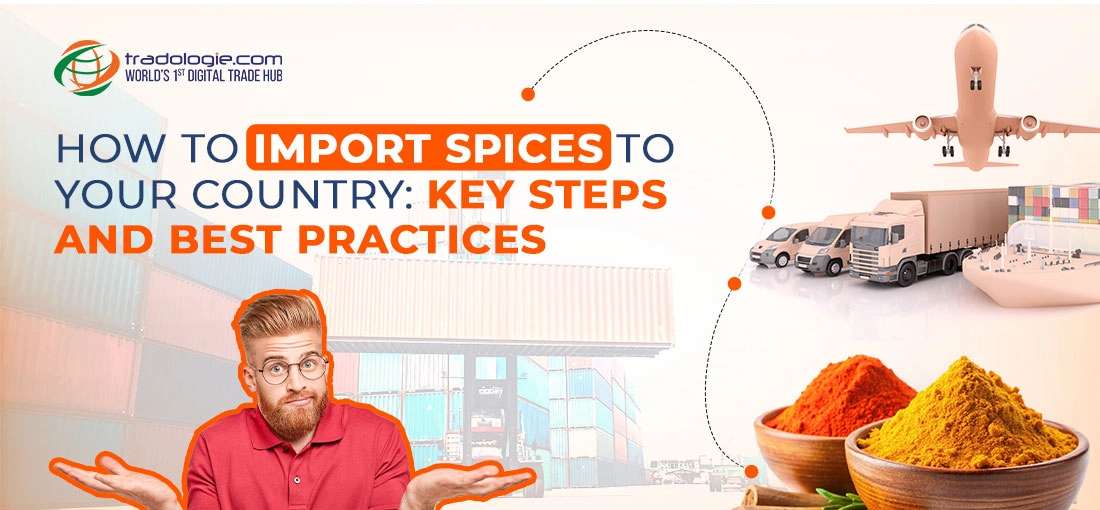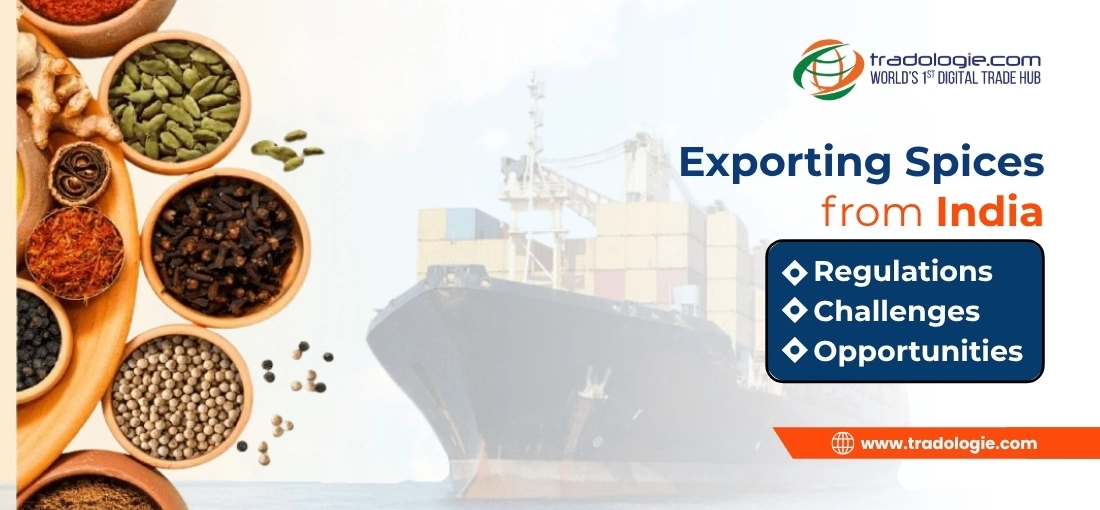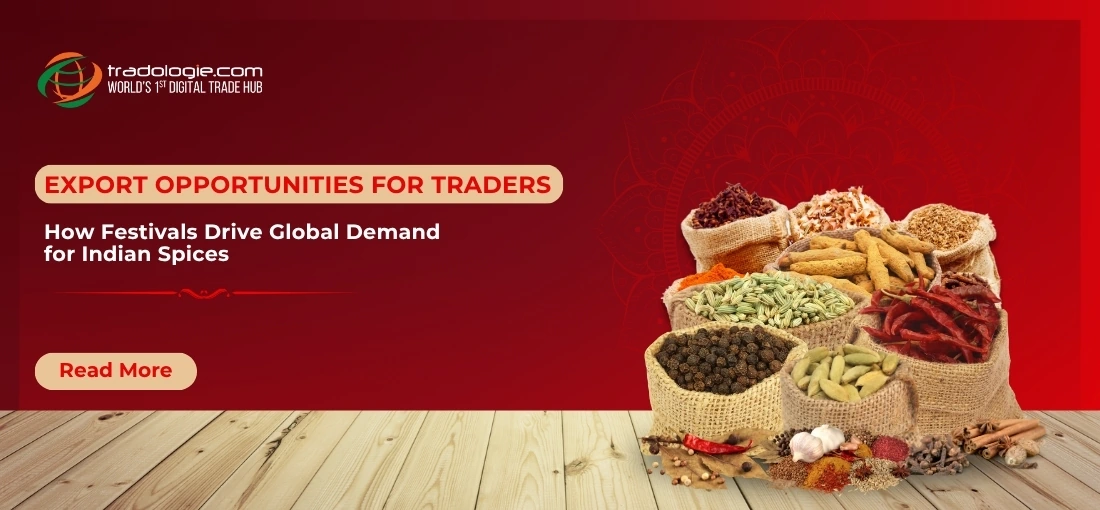How to Export Cloves from India: Quality Standards and Major Markets (2025 Guide)
Key Highlights:
- High-Quality Cloves : Make sure the cloves are whole, clean, and well-dried with low moisture so buyers worldwide accept them.
- Certifications Matter : Get IEC, CRES, Phytosanitary, and ISO/HACCP certificates to meet export rules
- Target Premium Market : Europe, North America, and wellness industries pay more for certified, aromatic, and traceable cloves.
- Smart Packaging & Shipping : Use moisture-proof, labeled packaging and plan transport carefully to keep the aroma and quality intact.
Introduction
Cloves are one of India's most valuable spices and are known for their strong aroma, sharp taste, and rich essential oils. They are widely used in food, medicine, and perfumes, keeping demand high worldwide. If you want to export cloves from India in 2025, it's important to understand the basics such as quality standards, market trends, and the A-Z export process.
Although India is among the top three global Importers of Cloves, the export potential remains significant. With Tradologie, Indian clove exporters can connect with leading buyers abroad seamlessly. This guide will help you navigate the process and start exporting easily.
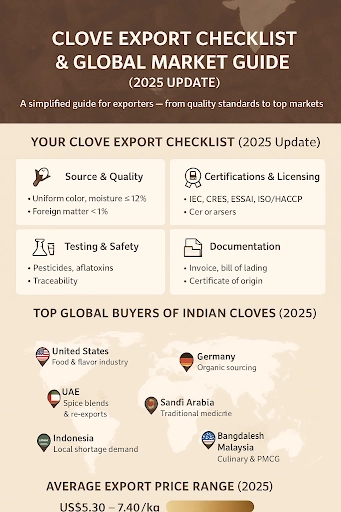
Why Quality Standards Are Important
Following quality standards is very important for exporting cloves from India to a foreign soil. If cloves have too much moisture, dirt, or wrong labels, buyers may reject them, causing loss. Countries like those in Europe and North America prefer cloves that are tested, certified, and easy to trace.
In India, the Spices Board of India and APEDA check that exports meet international standards. They work with approved labs (NABL and QEL) that test cloves for pesticides, toxins, and other harmful substances before shipping.
Key Quality Requirements for Cloves
Here's what international buyers expect:
- Form and Type : Whole dried buds, clean and unbroken. Powdered forms are accepted, but whole cloves are more valued.
- Moisture Content : Usually below 12%. Some premium buyers prefer 8-9%
- Aroma and Essential Oils : High eugenol content gives strong aroma and flavor. The color should be dark brown to black, uniform throughout.
- Foreign Matter: Less than 1% of dust, stems, or impurities.
- Certifications: You will need an FSSAI export license, Phytosanitary Certificate, and food safety certifications such as ISO, HACCP, or FSSC 22000.
Proper packaging is also key—use moisture-proof and food-safe materials, include country-of-origin labels, and ensure full traceability of every batch.
Export Regulations and Documentation
To export cloves from India, you must:
- Get an Import-Export Code (IEC) and a Certificate of Registration as Exporter of Spices (CRES) from the Spice Board.
- Follow Spice Board and Indian regulatory guidelines on pesticide residue limits. For example, cloves destined for the EU must meet the maximum residue limits (MRLs) set by EU Regulation 396/2005.
- Use NABL-approved labs for testing quality and safety.
- Use sealed or hermetic packaging to avoid moisture and odor damage. For instance, cloves exported to the US are often packed in vacuum-sealed, food-grade pouches to preserve aroma and comply with FDA import standards.
Major Markets for Indian Cloves
Cloves from India reach multiple regions, but these are the key destinations:
- Europe and North America: These markets demand certified, traceable, and often organic cloves. They pay premium prices for top-grade aroma and purity.
- Wellness and Perfumery: Growing industries use clove oil in dental products, aromatherapy, and skincare, preferring cloves with high eugenol content.
- Asian Markets: Countries in the Middle East and Southeast Asia import cloves for spice blends, sauces, and beverages. Quality matters, but prices are more flexible.
- Organic and Specialty Markets: In the EU, US, and Japan, organic and pesticide-free cloves earn higher prices and require Fair-Trade or organic certification.
- Export Volumes and Trends: In 2024-25, India exported around 8,500-9,000 metric tons of cloves. Most shipments went to Europe, North America, and Southeast Asia, showing a steady global demand for top-quality Indian cloves.
Export Prices and Market Outlook (2025)
In 2025, global clove prices range from USD 5.3 to 7.4 per kg, depending on quality and origin. Indonesia, Madagascar, Tanzania, Sri Lanka, and India are top producers.
Unstable weather in Indonesia has reduced production, pushing up prices and creating an opportunity for Indian exporters. Demand continues to grow, especially in wellness and food sectors.
How to Export Cloves Successfully
Follow these steps to build a smooth export process:
- Source Quality Cloves: Buy from trusted regions like Kerala and Tamil Nadu. Ensure proper drying and sorting.
- Lab Testing: Test for moisture, essential oils, and pesticide residues in NABL-certified labs
- Get Certifications: Obtain IEC, CRES, Phytosanitary Certificate, and food safety certifications like HACCP or ISO.
- Packaging and Labeling: Use moisture-proof packaging with batch and origin labels.
- Choose Your Market: Target markets that match your quality level. Premium markets pay more but require stricter compliance.
- Stay Updated: Keep track of changing import standards and residue limits.
- Plan Logistics: Ensure quick transport and storage to preserve freshness and aroma.
Challenges to Watch Out For
- Weather issues that affect yield and quality. For example, excessive rainfall in Kerala in 2024 reduced clove yields, affecting supply.
- High freight and transport costs. Shipping cloves to Europe during peak season can increase costs by 15-20% due to container shortages.
- Changing pesticide residue limits in importing countries. The EU updated maximum residue limits for eugenol and other compounds in 2023, causing some shipments to be delayed.
- Rejection due to weak documentation or poor packaging
- Competition from producers like Indonesia and Madagascar.
Conclusion
Exporting cloves from India can be a profitable business in 2025 if you focus on quality, safety, and compliance. Buyers today want products that are clean, traceable, and rich in natural oils.
With India's strong Spice Heritage, modern testing labs, and government support, exporters who follow global standards can easily tap into premium markets and build lasting trade relationships.

